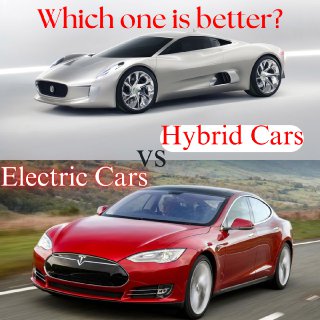
In today’s rapidly evolving automotive landscape, the decision between electric cars and hybrid cars has become increasingly relevant. With growing concerns about environmental impact and rising fuel costs, understanding the differences between these two green technologies is crucial. This comprehensive guide will help you decide which option suits your needs best.
UNDERSTANDING ELECTRIC CARS
Electric cars (EVs) are vehicles powered entirely by electric batteries. They produce zero emissions, making them an environmentally friendly choice. Popular models include the Tesla Model 3, Nissan Leaf, and Chevrolet Bolt.
Here are some key advantages of electric cars:
- Eco-friendly: Zero tailpipe emissions contribute significantly to reducing air pollution.
- Low operating costs: Electricity is cheaper than gasoline, and EVs have fewer moving parts, leading to lower maintenance costs.
- Quiet and smooth ride: Electric motors provide instant torque, resulting in a smooth and responsive driving experience.
- Government incentives: Many countries offer tax incentives and rebates for purchasing electric cars.



However, electric cars also have some drawbacks:
- Limited range: Despite advancements, the range of EVs is still a concern for long-distance travelers.
- Charging infrastructure: Although improving, the availability of charging stations can be a limitation in some areas.
- Higher upfront cost: Electric cars generally have a higher purchase price compared to their gasoline or hybrid counterparts.
UNDERSTANDING HYBRID CARS
Hybrid cars combine a gasoline engine with an electric motor, offering a balance between traditional and electric power. They come in various forms, such as plug-in hybrids (PHEVs) and traditional hybrids. Notable models include the Toyota Prius, Honda Accord Hybrid, and Ford Fusion Hybrid.
Key benefits of hybrid cars include:
- Extended range: Hybrid cars can switch between electric and gasoline power, making them ideal for long trips.
- Fuel efficiency: They offer improved fuel economy compared to conventional gasoline cars.
- Lower emissions: Hybrids produce fewer emissions than traditional cars, contributing to a cleaner environment.
- Reduced range anxiety: Since hybrids can rely on gasoline when the battery is depleted, drivers experience less range anxiety.



WHICH IS RIGHT FOR YOU?
Choosing between an electric car and a hybrid car depends on your specific needs and lifestyle. Here are some factors to consider:
- Driving habits: If you mostly drive short distances and have access to charging stations, an electric car may be ideal. For long commutes or frequent road trips, a hybrid could be more practical.
- Environmental impact: If minimizing your carbon footprint is a priority, electric cars are the clear winner.
- Budget: Consider both the initial purchase price and long-term operating costs. While electric cars may have a higher upfront cost, they often save money over time due to lower fuel and maintenance expenses.
- Availability of charging infrastructure: Ensure you have convenient access to charging stations if you opt for an EV.
By understanding the key differences and advantages of electric and hybrid cars, you can make an informed decision that best suits your lifestyle. Whether you choose an all-electric vehicle or a hybrid, you’ll be taking a significant step towards sustainable and eco-friendly driving.